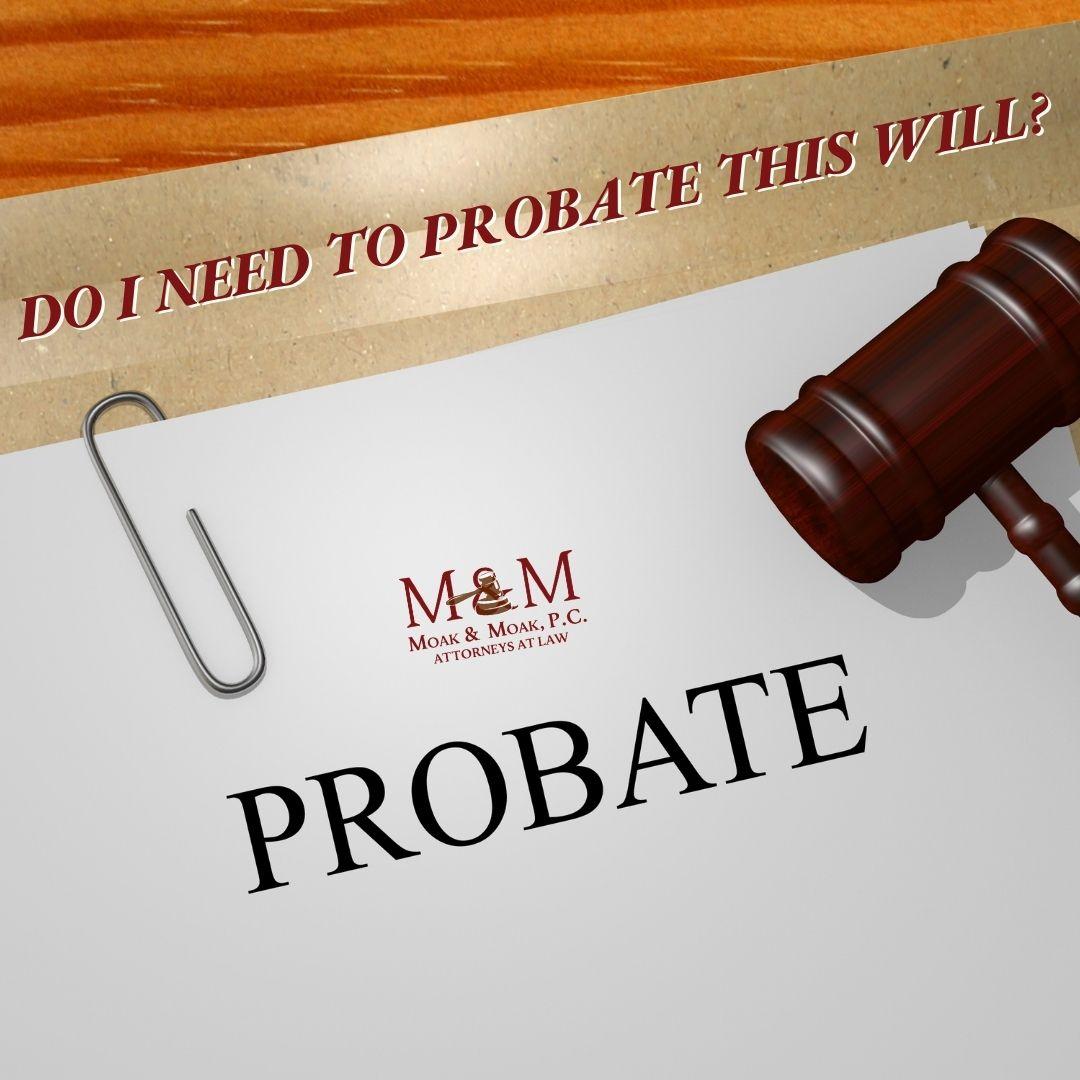I am amazed at how many times I am asked is “Do I need to probate this Will?” Unfortunately, when a spouse passes away, the surviving spouse is given misinformation that they do not need to probate their deceased spouse’s Will because they were married. This is not the rule of law. Unfortunately, many surviving spouses fail to seek an attorney’s advice and fail to probate their Will. Your neighbor, co-worker and friends are not qualified to advise you in this area.
If it has been over four (4) years since the spouse died, probating the Will can get complicated (i.e., expensive). The law is very specific that a Will must be filed within four (4) years of the date of death. The exceptions to this are very limited and do not include, “A friend told me I do not need to.” I strongly encourage not to rely on friends and neighbors advice. Rather, ask an attorney who focuses their practice on estate planning if you need to probate a deceased person’s Will.
Estate administration is the management and settlement of a deceased person’s estate by a personal representative approved by the court. Estate administration does not require a Will.
Probate is the formal process of administering a person’s estate when he or she had a Will. Probate may not be necessary when the decedent’s estate is so small that no action is necessary to distribute the property to the beneficiaries or heirs.
However, probate is required in most other circumstances. In fact in a recent case the court ruled a Will not admitted to probate is not effective for the purpose of proving title to real estate. Ratcliff vs. Polk County Title, Inc., No. 09-04-124-CV, 2004 WL 1925447 (Tex. App.-Beaumont. Aug.31,2004, pet.denied). In this case a title company was sued for defamation after the title company issued a title report (i.e., Commitment) that included a statement that Mrs. Ratcliff, a deceased owner of real property, died intestate. Mr. Elijah Ratcliff, Mrs. Ratcliff’s son and named executor in Mrs. Ratcliff’s Will, sued the title company on the grounds that Mrs. Ratcliff did, in fact, have a Will and, therefore, the title report was defamatory. The District Court rejected Mr. Ratcliff’s theory. The Appellate Court affirmed the District Court’s ruling and pointed out that although Mr. Ratcliff had previously filed an application to probate Mrs. Ratcliff’s Will, the Will was never presented for action in the Court. Citing Texas Probate Code Section 94, the Appellate Court ruled that until a Will has been admitted to probate, it is not effective for the purpose of proving title to real property; thus, in that context, the title report was not defamatory.
In Texas, there are several different methods of administering an estate, some of the more common are Independent Administration, probating the Will as a Muniment of Title, filing a Small Estate Affidavit, and filing an Informal Family Settlement.
If the decedent owned real property at death, then something must be done to properly transfer the property. Usually this is not discovered until the family of the decedent decides to use, sell, or partition the property. It could also arise if there is a dispute as to payment of expenses or taxes on the property. Without a Will this process can be complicated, involve contacting many heirs, and take a great deal of time.
Please note that there are limitations as to which form of probate may be used depending on the situation, and no Will shall be admitted to probate after the lapse of four years from the date of death. You should not delay seeking the advice of your attorney to decide which method of estate administration is right in your particular circumstance. It could save you time and money.

